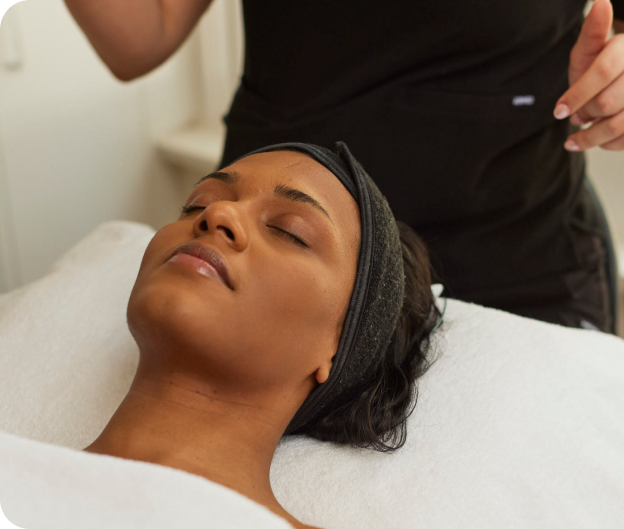MEDICAL
Wart Clinic
At Skindepth Dermatology we offer a nurse-led wart clinic for the assessment and treatment of molluscum contagiosum infections, viral and plantar warts infections. Our clinical nurse specialists, alongside your dermatologist, examine your lesion with a dermatoscope to confirm the viral wart or molluscum diagnosis. If confirmed as a wart or molluscum our nurses will treat the lesion during your first appointment and organise an ongoing treatment plan to ensure complete clearance of the infection.
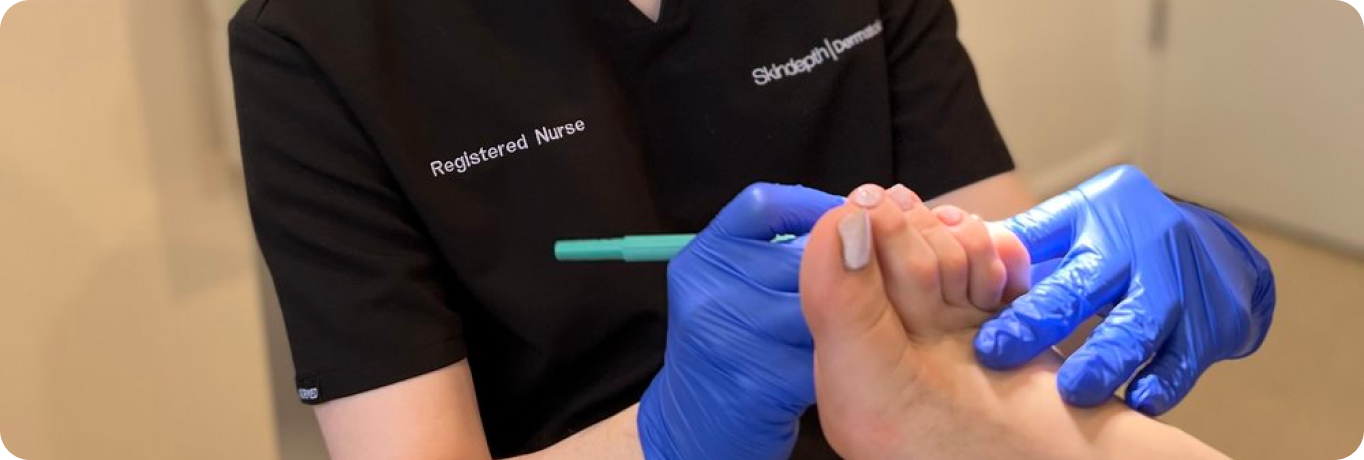
Warts and molluscum can be difficult to treat due to the fast-growing nature of these lesions and the need to remove ALL virus-containing skin to prevent recurrence. Therefore, all wart treatments require commitment and patience to achieve best results. At Skindepth Dermatology, we often employ multiple treatment modalities to eradicate even the most recalcitrant wart. Some methods we use are below:
- Curettage + Cantharidin (“Beetle-Juice”)
- Salicylic Acid application
- DCP application
- Cryotherapy with Liquid Nitrogen
- Vascular laser (Vbeamvascularlaser)
- Electrosurgery
- Take home prescription topicals such as DCP, Salicylic Acid, Imiquimod and others
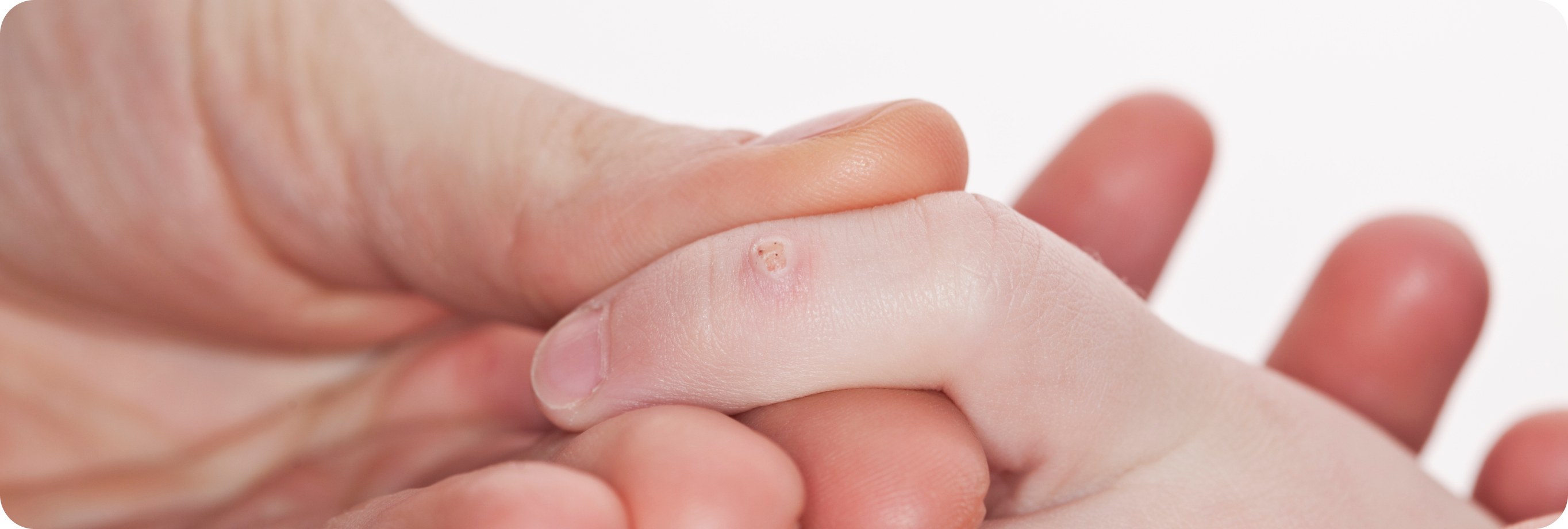
Molluscum contagiousm is an infection most often contracted in childhood and from heated water such as swimming pools and swimming lessons.
Mollusucum is easily spread sharing baths and bath towels of those infected. It is commonly spread in swimming pools and bath houses. Molluscum uncommonly affects adults but can do in those who are immune suppressed or from warm environments like spas.
Molluscum can go away by itself but can leave scarring in some people. It often is harder to treat in those with background atopic dermatitis or eczema. Sometimes it can be itchy if there is eczema infection can result from scratching.
Cantharidin is the most common treatment we employ at the skindepth wart clinic to treat molluscum. Your dermatologist will also prescribe treatment for eczema if that is occurring concurrently.
Cantharidin is an active ingredient commonly used as a first-line treatment for warts and molluscumat Skindepth Dermatology. Derived from the shells of beetles, this solution causes a blister to form on the treated wart or molluscum. The blister allows the wart to lift off the skin and therefore its blood supply.
Following application, the blister may take 24-48 hours to form. The blister will then dry and fall off over the next week of recovery.
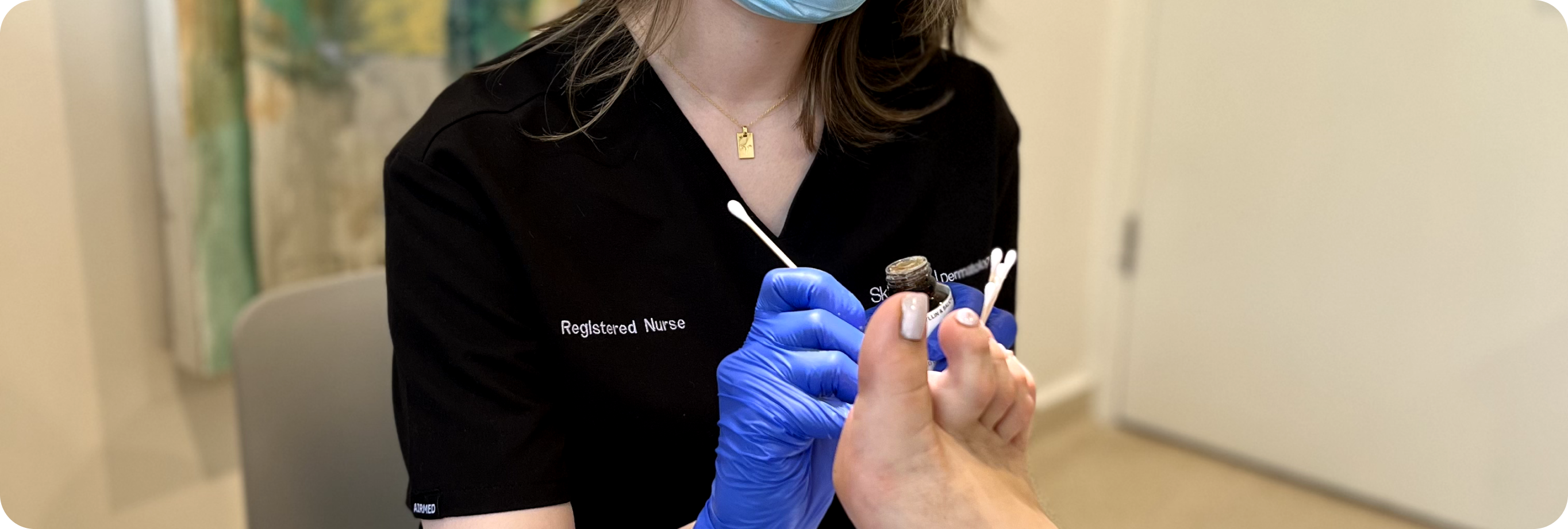
As warts may often be resistant to treatment, we require regular in-clinic reviews. Generally, we ask that patient’s return to clinic two weeks after their initial appointment for secondary treatments. We continue fortnightly appointments until the wart is completely eradicated. The number of appointments required is hard to predict and dependant on various factors including: an individual’s immune system and the type of wart. Patient may require anywhere between 2-10 appointments. All treatments are overseen by your dermatologist.
Our Curettage + Cantharidin and other topical treatment is not painful during the appointment as there are no pain receptors in the warty tissue. However, 24-48 hours post treatment the lesion may be tender due to the formation of a blister. This pain is generally manageable without the need for supplementary pain relief. Cryotherapy can be uncomfortable but the discomfort is short-lived. Vbeam laser treatment for warts is quite uncomfortable but your clinician will engage techniques to help reduce the discomfort.
Warts are very common viral growths related to the human papillomavirus (HPV) infection. These lesions are especially common in certain population groups, including young children or immunosuppressed individuals.
Warts are contagious, often spreading through direct skin to skin contact. They also have the potential to be transmitted from one body site to another through impaired skin barriers (e.g., from the foot to under the fingernails).
Warts may also be transferred indirectly through contaminated areas such as the swimming pool, or damp bathmats and towels.
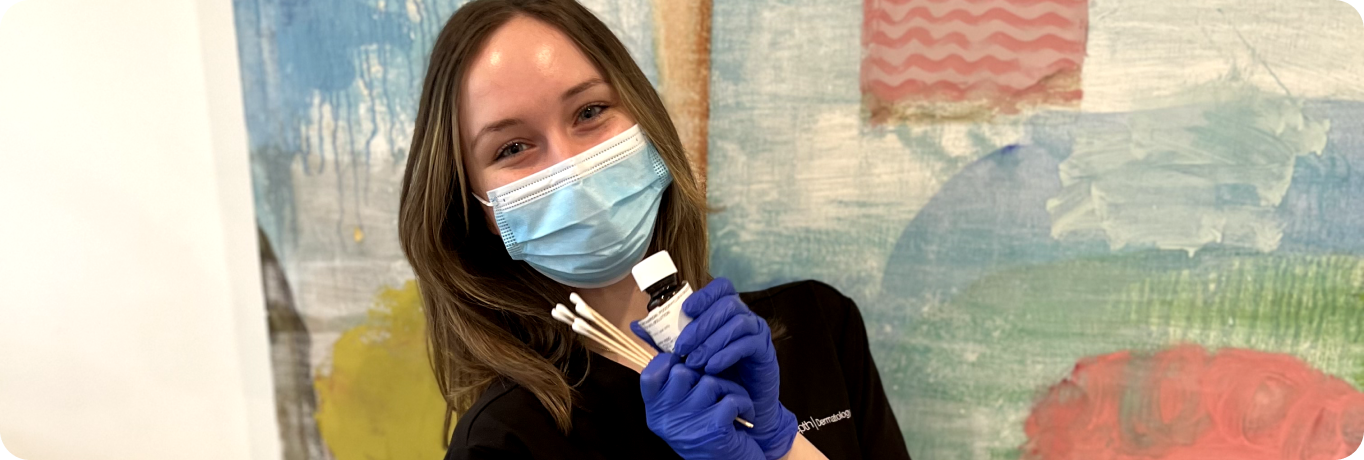
There are a few methods you can implement to reduce your likelihood of developing a wart (especially if someone in your family has a current lesion). These include:
• Each member of the household using their own, individual bath towels, socks, razors, nail clippers, etc.
• Cover any cuts or scrapes with a clean dressing.
• Avoid picking or biting your nails as this may lead to an impaired skin barrier at the nail bed.
• Prevent dry or cracking skin with daily moisturiser.
• Wear sandals in common areas, including change rooms, gym showers or swimming pools.
• Regular hand washing.
• Children are encouraged to receive the human papillomavirus (HPV) vaccine.
• Treat excessive sweating of the hands and feet – our nurses will be happy to talk through methods of treating hyperhidrosis with you, during your appointment.
